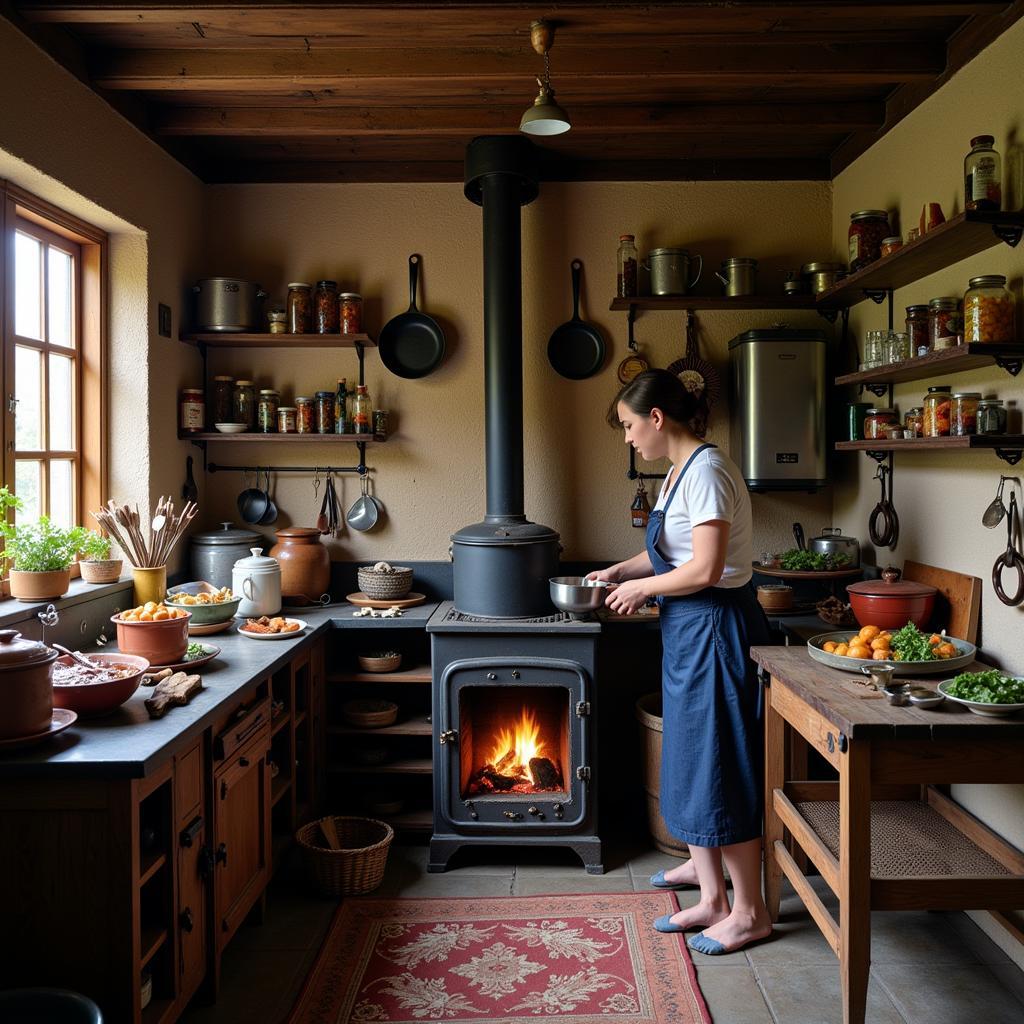African American Homes in the 1930s: A Glimpse into Daily Life
African American Homes In The 1930s reflected the harsh realities of the Great Depression, segregation, and systemic racism. Yet, they also served as sanctuaries of family, community, and cultural preservation. This article delves into the various aspects of African American domestic life during this challenging era.
Housing Challenges and Resilience in the 1930s
The 1930s presented formidable housing challenges for African Americans. Discriminatory practices like redlining limited access to mortgages and better housing opportunities, confining many to overcrowded, substandard dwellings in segregated neighborhoods. These neighborhoods often lacked basic amenities like running water, sanitation, and adequate heating.
Despite these hardships, African American families demonstrated remarkable resilience. Making a home, no matter how humble, remained a priority. Families often took in relatives and boarders to share expenses and create a sense of community. Resourcefulness and creativity were essential for making ends meet. Gardens provided sustenance, and families often made their own clothes and furniture repairs.
The Role of the Church and Community
The church and community played pivotal roles in supporting African American families during the 1930s. Churches served as centers for spiritual guidance, social gatherings, and mutual aid. They organized food drives, provided childcare, and offered educational programs. african american history 1900s This strong sense of community fostered a spirit of collective responsibility and helped families navigate the difficulties of the era.
What were common features of African American homes in the 1930s?
Many African American homes, particularly in rural areas, were modest structures built from readily available materials like wood and salvaged items. Urban dwellings often consisted of cramped apartments in aging buildings. Inside, furniture was often simple and functional, handed down through generations or acquired secondhand.  The interior of an African American kitchen in the 1930s, highlighting resourcefulness and the importance of food in family life.
The interior of an African American kitchen in the 1930s, highlighting resourcefulness and the importance of food in family life.
How did African Americans maintain their cultural heritage in their homes?
Despite the economic hardships and social injustices, African American families maintained their cultural heritage within their homes. Storytelling, music, and religious practices were integral parts of daily life. These traditions provided a sense of continuity, identity, and hope for the future. african american history 1900s Music, especially the blues and gospel, played a vital role in expressing the joys and sorrows of the community.
Preserving Family History and Legacy
Oral histories, passed down through generations, played a crucial role in preserving family history and legacy. Grandparents shared stories of their ancestors’ struggles and triumphs, instilling a sense of pride and resilience in younger generations. These narratives connected families to their past and provided a foundation for understanding their present circumstances.
“Home, in the 1930s, was more than just a physical space,” explains Dr. Thelma Harris, a historian specializing in African American life during the Great Depression. “It was a haven, a place where families nurtured their cultural heritage, found strength in unity, and persevered through adversity.” Another historian, Dr. James Clayton, adds, “The resourcefulness and resilience displayed by African American families during this period is a testament to the power of community and the enduring human spirit.”
In conclusion, African American homes in the 1930s, while often marked by hardship and inequality, also represented resilience, community, and the preservation of cultural heritage. These homes served as the foundation for African American families to navigate challenging times and build a better future. Understanding the domestic lives of African Americans during this era offers valuable insights into the broader historical context and the ongoing struggle for social justice.
When needing support, contact us by Phone: +255768904061, Email: [email protected] or visit us at: Mbarali DC Mawindi, Kangaga, Tanzania. We have a 24/7 customer service team.


